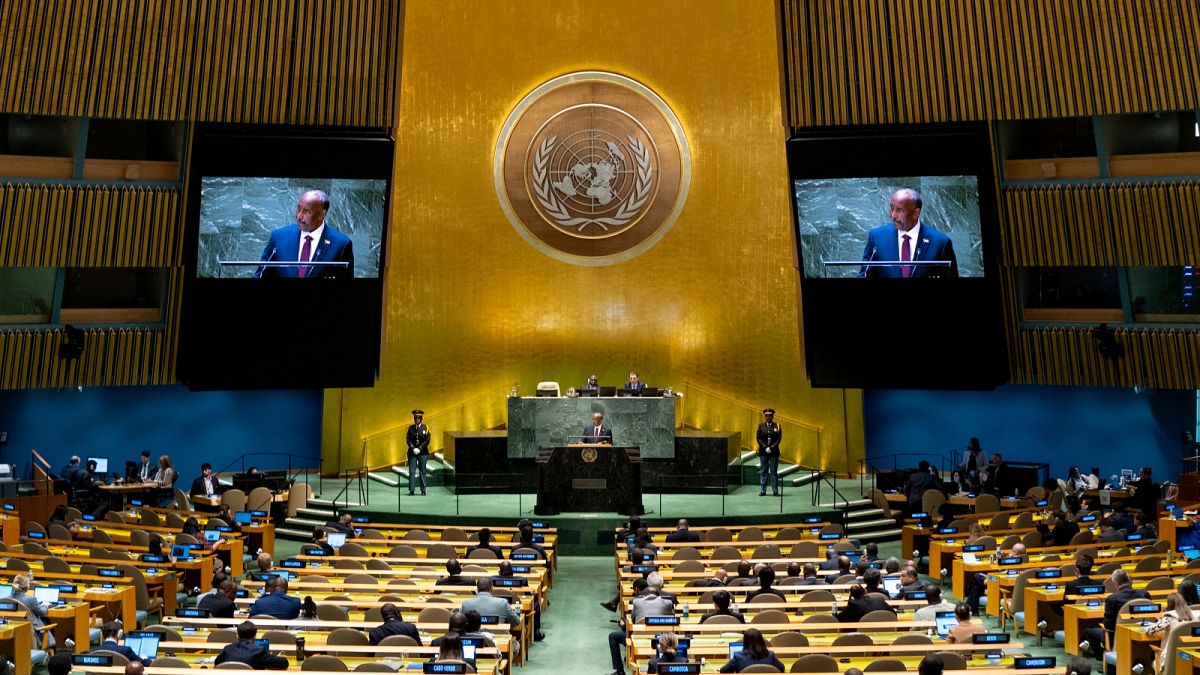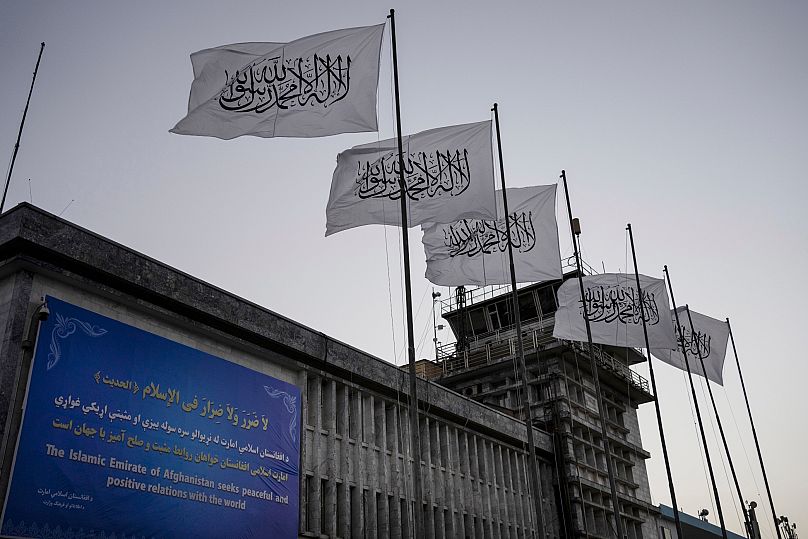The United Nations Credentials Committee is a solidly closed doors group - but their work is among some of the most important in the entire organisation.
If you haven’t heard of the United Nations Credentials Committee, you’re not alone.
Despite its rather innocuous sounding name, it’s actually one of the most important bodies in the entire organisation.
It has no official space to call its own in the UN’s New York City HQ and doesn’t even appear on the body’s own organisational chart of its many agencies, councils, committees and departments.
It could be considered the ugly sister of international diplomacy when all that is taken into account but, in fact, when it comes to countries riven by political divisions or coups, the body is the gatekeeper to the world's stage at the UN General Assembly's annual meeting.
For most universally recognised governments, credentialing is a mere formality.
But for leaders of factions and reasons with weak claims of ownership, the Committee is the only way towards legitimacy within divided nations.
Until recently, the workings of the Credentials Committee received little to no scrutiny from the worldwide press.
That all changed when the Taliban and Myanmar military junta sought entry but, nevertheless, it remains "an astonishingly opaque body” - according to Richard Gowan, UN director for the International Crisis Group.
What is the Committee - and how does it work?
The president of the General Assembly proposes the members for the nine-member body at the beginning of each year-long session.
Russia, China and the United States have occupied permanent committee seats since its 1947 inception, while the others rotate on a yearly basis.
The current seats are made up of representatives from Andorra, Grenada, Nigeria, Solomon Islands, Suriname and Togo.
A handful of times a year, the Committee meets behind closed doors. At the end of each session, they issue recommendations in reports which shed virtually no light on what actually happened in the gathering, with many adding up to just three pages.
The General Assembly itself rarely discusses or debates the report before giving its approval.
“I think everyone finds the Credentials Committee a bit of a mystery. It is one of the least transparent UN bodies,” Richard Gowan tells the AP.
“To some extent, everyone sort of lives with this, because the fact that it isn’t transparent allows it to fudge certain decisions and kick hard decisions down the road,” Gowan adds.
Decisions on credentials are well known to be politically treacherous.
Rival authorities on occasion submit documents to try to credential their own would-be UN representatives - but the Committee’s criteria for recommending the UN grant or deny entry remain a matter of some conjecture.
At the top of the list is the thorny issue of effective control of territory.
According to an article in the American Society of International Law penned by Catherine Amirfar, a former president of the association, alongside two associates from her law firm Debevoise & Plimpton: “It is difficult to distill rules or principles on representation determinations from the Credentials Committee’s recommendations”.
“The Committee appears to apply a presumption of continuity from the prior session, while accounting for factors such as democratic legitimacy and commitment to human rights. Whatever factors the Committee might consider relevant, the nature of the criteria considered surely leave room for political considerations,” the lawyers added.
Although no country has diplomatically recognised the Taliban, it still manages to hold onto power throughout Afghanistan.
Myanmar’s junta likewise controls the country despite a less than tangible claim to leadership.
Yet both countries have gone unrepresented at the General Assembly in 2021 and 2022.
Last December, having once again received competing submissions from the two ruling bodies, the Credentials Committee issued a report - but put off making a decision on the leadership status of the two countries, leaving the Taliban and the junta still boxed out.
It also declined to issue a recommendation on dual requests from Libya.
That lack of choice means that the credentials remain in the hands of the internationally recognised administration seated in the country’s capital Tripoli, as opposed to with the rival government in the east.
Some countries are in the grip of a power struggle - but choose not to go to the UN for advice or decisions (or lack thereof).
On Thursday at the General Assembly, Sudan’s General Abdel-Fattah Burhan, who seized power in a 2021 coup, sidelined a broad-based pro-democracy movement and for the last five months has been battling an equally autocratic rival general for control of the African nation.
Interestingly, despite controlling much of the country’s territory - including the capital, Khartoum - the paramilitary Rapid Support Forces have not submitted a request for UN credentials.
Issues with the process
For those that do decide to submit a request for credentials, there are occasional delays in getting a response from the Committee or the wider UN.
Following a coup in July, two competing credentials were submitted for Niger but, as yet, it’s been reported that the Credentials Committee has yet to schedule a meeting.
Before the coup, Bakary Yaou Sangaré had been Niger's representative at the UN. Afterwards, the ruling junta made him their minister of foreign affairs and circulated his photos to journalists in the General Assembly hall on Monday, along with a statement proclaiming that he would “reaffirm the nation’s sovereignty”.
However, the UN also received a letter from the deposed government's foreign minister “informing of the end of functions of Mr Bakary as Permanent Representative of Niger to the United Nations,” and Stéphane Dujarric, spokesperson for the Secretary-General, told the AP on Thursday that Dujarric was no longer allowed onto the premises.
That didn’t go down well with Niger’s new military rulers.
“This team, led by the army, enjoys the unconditional support of the people and we’re going to demand that our government react,” Insa Garba Saidou, a local activist who assists with their communications, told The AP.
Despite the non-transparent nature of the Committee, its recommendations can have other knock-on effects.
Catherine Amirfar’s article noted that the Credentials Committee's reluctance to make a decision on Myanmar created confusion over who between a representative of the junta or of the prior government would represent the country at the International Court of Justice - a crucial body for every nation.
“The role of the Credentials Committee and the impact of its recommendations has grown substantially since UN member states first adopted the rules that govern its procedure. Far from its original ministerial function .. The Credentials Committee has emerged as a key player in critical questions of global governance,” the article laid out.
The question of whether or not recent events will change how opaque the Committee will be is an answer only known by those nine members.

